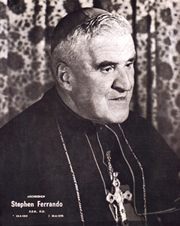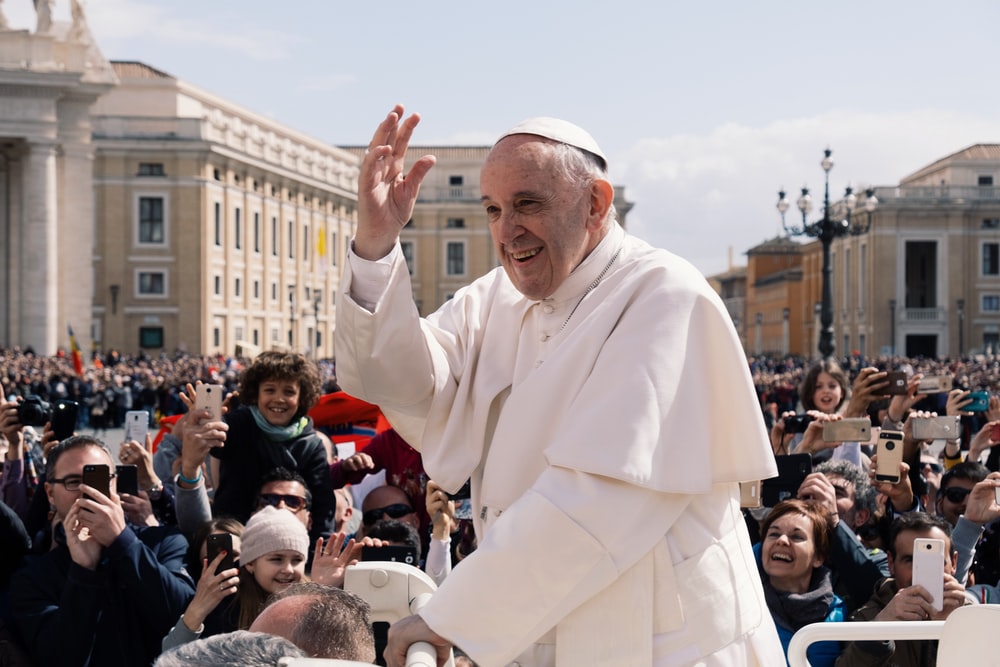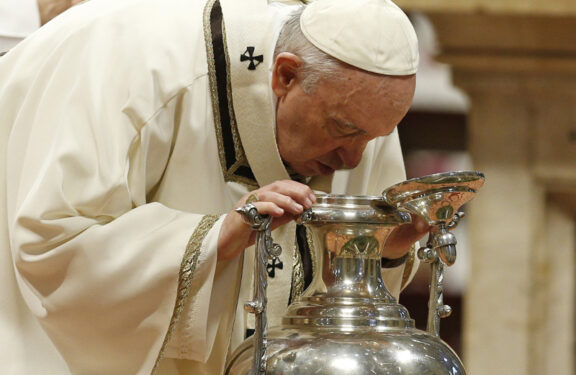 Stephen Ferrando SDB, lived for 46 years serving the people of North East India. A man of deep faith and a great trust, he saw the extraordinary in the ordinary. For 34 years he was Bishop of Shillong, which then comprised the whole of North East region of India. At his retirement he was asked to return to his native place Rossiglione, Genova. The last phase of his life he spent with his confreres in Genova Quarto where he died at the age of 83, in 1978. People who lived with him in Shillong and Genova, remember him as a “good and holy” pastor who went about doing good to all, making selfless sacrifices. He was a lover of children especially the poor and abandoned. His fame of sanctity gradually began to spread among the people of Shillong. It was his confessor in Genova, Fr. Luigi Ulla SDB who insisted on initiating the Cause and transferring the mortal remains to Shillong, where he wanted to remain among the people he loved and served so selflessly, with total dedication. The mortal remains were brought to Shillong in 1987. The Salesian Congregation (SDB) initiated the Cause in 1997, in collaboration with the Missionary Sisters of Mary Help of Christians, the congregation founded by him. There were two diocesan processes, one in Shillong and the other in Genova. The process at Shillong was officially inaugurated by Most Rev. Dominic Jala SDB, Archbishop of Shillong on 3 October 2003. The one at Genova was initiated on 27 May 2006. Both the processes were concluded together in Shillong on 13 August 2006 at the presence of the Local Ordinary and Postulator General.
Stephen Ferrando SDB, lived for 46 years serving the people of North East India. A man of deep faith and a great trust, he saw the extraordinary in the ordinary. For 34 years he was Bishop of Shillong, which then comprised the whole of North East region of India. At his retirement he was asked to return to his native place Rossiglione, Genova. The last phase of his life he spent with his confreres in Genova Quarto where he died at the age of 83, in 1978. People who lived with him in Shillong and Genova, remember him as a “good and holy” pastor who went about doing good to all, making selfless sacrifices. He was a lover of children especially the poor and abandoned. His fame of sanctity gradually began to spread among the people of Shillong. It was his confessor in Genova, Fr. Luigi Ulla SDB who insisted on initiating the Cause and transferring the mortal remains to Shillong, where he wanted to remain among the people he loved and served so selflessly, with total dedication. The mortal remains were brought to Shillong in 1987. The Salesian Congregation (SDB) initiated the Cause in 1997, in collaboration with the Missionary Sisters of Mary Help of Christians, the congregation founded by him. There were two diocesan processes, one in Shillong and the other in Genova. The process at Shillong was officially inaugurated by Most Rev. Dominic Jala SDB, Archbishop of Shillong on 3 October 2003. The one at Genova was initiated on 27 May 2006. Both the processes were concluded together in Shillong on 13 August 2006 at the presence of the Local Ordinary and Postulator General.
The first postulator general was Fr. Pasquale Liberatore SDB. At his sudden demise on 30.10. 2003, Fr. Enrico dal Covolo SDB was appointed the postulator general. When the latter was elevated as bishop of Eraclea on October 9, Fr. Pierluigi Cameroni SDB was appointed postulator general on 6 July 2010. Sr. Philomena Mathew MSMHC is the vice postulator. The Decree of validity was granted on 17 October 2008 by the Congregation for the Cause of Saints. Rev. Fr. Cristoforo Bove, OFM Conv., was appointed the Relatore of the cause on 21 November 2008. At his sudden demise Fr. Zdzislaw Kijas, OFM Conv., was appointed Relatore on 5 November 2010. A total number of 93 persons witnessed at rogatory enquiry. In Shillong there were 70 witnesses among whom 2 Bishops, 10 priests, 8 religious and 50 lay persons. At Genova there were a total number of 23 of whom 10 priests, 2 religious and 11 lay persons. The quality of the witnesses is de visu (61) and de visu et de auditum (32). All the witnesses have either lived with him, or has seen and heard of him from their parents or relatives. His own close relatives such as grand nephews, nieces and cousins knew him very personally and their testimony is rich.
The witnesses testify to his generous self-immolation, courageous spirit and profound faith in tribulation, heroic obedience and sincere love towards the poor and abandoned in the
missions where he served. His spirit of prayer and constant union with God is attested by them. He was a great devotee of Jesus in the Blessed Sacrament and Mary Help of Christians who sustained him in his untiring mission. His love for the spread of God’s Kingdom in mission land made him forget himself and reach out to the people in villages. However, there seems to be endless repetitions in the narrations. Some of them also mention about the indigenous congregation for women which he founded in order to meet the needs of the time, especially to evangelize a vast region of multilinguistic and multi-ethnic culture during the aftermath of World War II. The witnesses of Genova process consist in those who were close to him during the last phase of his life, namely the community members and the relatives of his family.
These throw light into the inner life of the Servant of God. They reveal the mature years of his deep prayer life, constant union with God, heroic virtues of detachment, profound humility, obedience, patient suffering and perfect submission to the will of God at all times. The close relatives namely, his nephews and nieces bear witness to his selflessness in serving the poor and how he spared every penny for the mission which he loved so much. Ferrando represents well the virtues and the values of the missionaries. He always remained faithful to what Jesus wanted: "Go into all the world, proclaim the Gospel to every creature." He was in love with Jesus (he prayed a lot) in love with his people, especially the small and the least, and wrote: "These poor are not mine, but God’s and God never allows us to lack the necessary." He lived to the letter what Jesus says in the Gospel: "Do not worry too much, saying, 'What shall we eat? What shall we drink? How will we dress?” But if you seek first the Kingdom of God and do his will, everything else will be given.” (Matt. 6, 31-34). For Ferrando it was a living reality, which brought joy to the heart despite all the problems he had. Besides the witnesses’ testimony, there is a collection of writings by the Servant of God himself in the form of letters to superiors, exhortation to sisters and novices and articles in reviews which gives first-hand knowledge about the growth and development of his spiritual life and heroic virtues.
He exhorted the missionaries: “Ma questo e` l’ambizione del Missionario: passare, facendo del bene. Il resto che importa? Tutto e` per la Gloria di Dio,” “I have walked much even at night in the jungles and virgin forests; my Calvary was often the dangerous tracks opened by the wild elephants.” The writings of Ferrando which are poetic, adventurous and inflamed with love for the poorest, have attracted many vocations to the priesthood, and religious missionaries not only in India, but also in Italy and other countries.
Pope Francis on the Ascension: Christ 'does not want to limit our freedom' by his presence
Reflecting on the feast of the Ascension, Pope Francis on Sunday discussed…

Canonical Visitation Tinsukia Province
Canonical Visitation in Sacred Heart Province Tinsukia The Superior General…
Pope Francis Breathes on Chrism Oil
Pope Francis breathes on chrism oil, a gesture symbolizing the infusion of…

